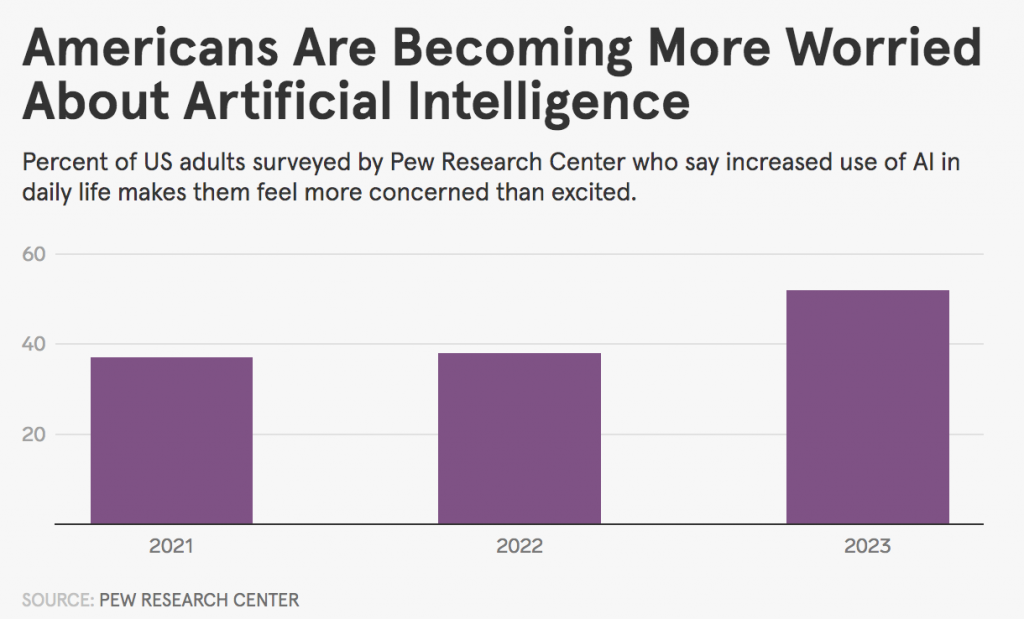Pew’s Questions about AI Show Deep-Seated Concern by Americans over Lack of Regulations
Just about everyone has a cell phone that has many AI apps in it. AI is used in voice-operated services, for calling customer service, for shipping and in a myriad of other aspects of daily living. A wired.com story explains American ambivalence about AI and why it’s becoming more focused on negative aspects in the latest Pew poll.
“A majority of Americans say their concern about AI in daily life outweighs their excitement about it, according to a Pew Research Center survey of more than 11,000 U.S. adults. The results come at a time when a growing number of people are paying attention to news about AI in their daily lives. Pew has run this survey twice before but now reports that the number of people more concerned than excited about AI jumped from 37 percent in 2021 to 52 percent this month. That’s a major change in how we view AI.”
Changing Points of View
In the Pew survey people were asked about things they may not have even been aware that AI was already a part of.
“When asked how they felt about the police using AI for public safety, roughly half of respondents said they weren’t sure, with the rest evenly split between saying the technology would help or hurt. Many more people believed that AI would help doctors provide quality care to patients, but it’s likely people would have different feelings about some specific applications of medical AI. Many would probably feel uncomfortable with a triaging algorithm making life-or-death decisions about who receives what treatment.”
The survey showed that people were most concerned with the potential invasion of privacy by AI technology, a concern that has played out in many public bodies, such as seen in protests by AI workers who want more stringent regulations. Wired.com says that “activists, policy experts, and researchers who want to protect civil rights and hold businesses and governments using AI accountable” are among those calling for privacy and data protection law. Congress has yet to pass any laws along these lines.
Discrimination Not Questioned
We at Seeflection.com have carried several stories about the gender and racial bias that has been programmed into so much of our computer/AI uses. And unfortunately, the Pew survey seemed to have left that issue out of the questions it was asking.
Data shows that AI systems used for hiring, for instance, boost racism, sexism and discrimination against the poor and people who identify as queer. However, if it’s monitored properly and used correctly, it can eliminate bias and prevent discrimination.
“Sennay Ghebreab, director of an AI lab at the University of Amsterdam, told me last year, ‘I’ve been working on this topic for a decade, and although it can be harmful to people, AI presents an opportunity to uncover hidden biases in society.’ “
Many Feeling Left Out
Many Americans feel they aren’t included in the conversation about AI and its role in the country in the future, and that’s a problem, according to the story.
“Understanding the role of AI in daily life is, as Microsoft CTO Kevin Scott said in 2019, part of citizenship in the 21st century—so educate yourself on what accountability looks like to you and tell your elected officials.”
It seems clear that as members of a ground-breaking country and a leader in AI, it’s time for Americans to get involved and urge their representatives to pull their heads out of the sand and start regulating one of the most powerful technologies of our lifetimes.
read more at wired.com








Leave A Comment